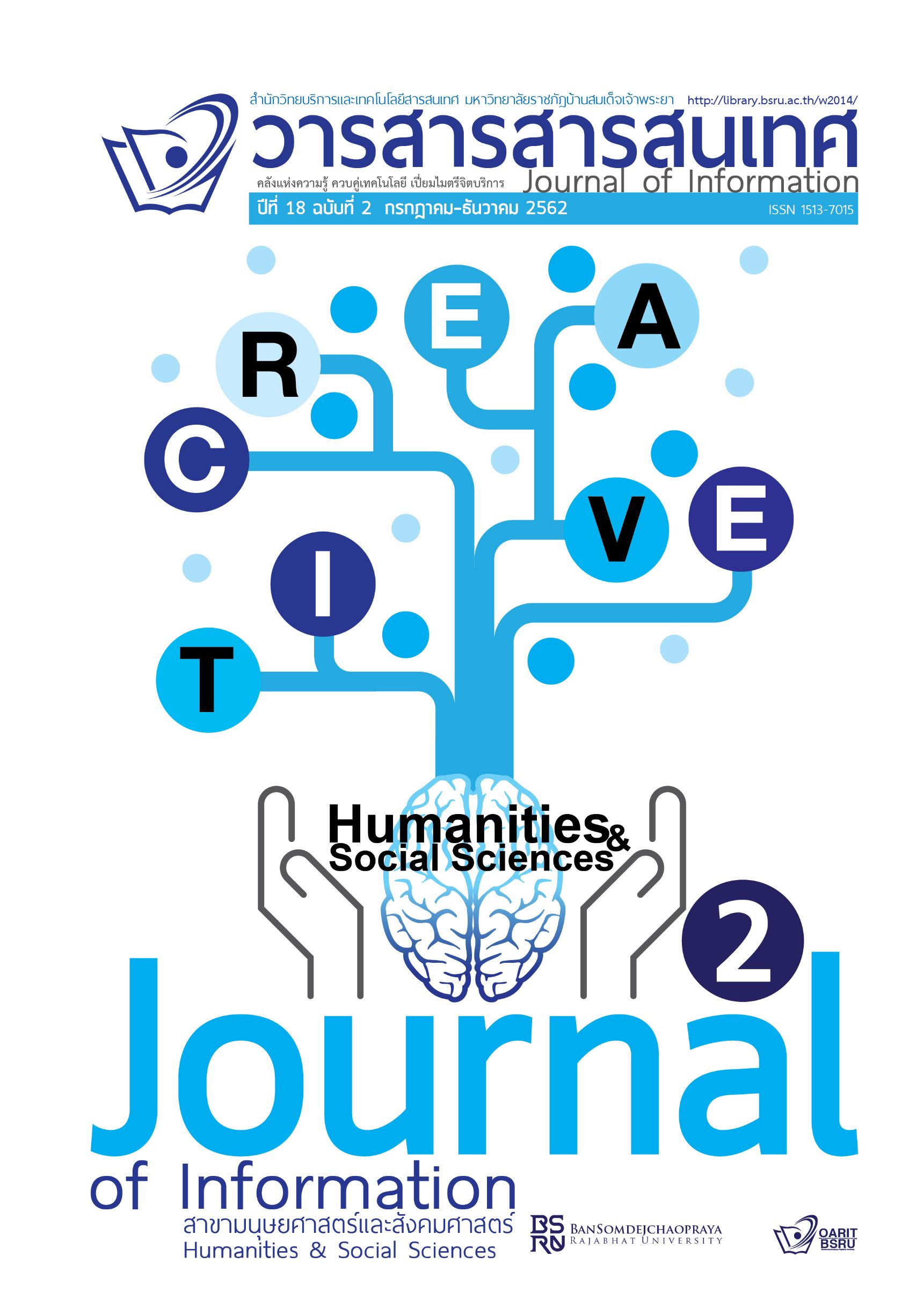A Management of Intangible Cultural Heritage: A Case study of Stone Polished Bronze the Making of the Banbu Community
Keywords:
Knowledge Management, Intangible Cultural Heritage, Stone PolishedAbstract
The purpose of this research was to study the knowledge management, the cognitive function and the cognitive knowledge management. Data were collected from 3 groups of stakeholders: 1) cultural bearers, 2) community leaders and 3) insider. The study indicated that there are 5 processes of knowledge management framework as follows: 1) knowledge of identification 2) knowledge of creation and acquisition 3) knowledge of storage and access 4) knowledge of sharing and 5) knowledge of application. The knowledge of heritage, cultural wisdom, and the cognitive process is mostly buried deep. Conservation of the research also provided suggestions for the management of the cognitive knowledge of cultural heritage and knowledge creation and constantly taking place through activities such as books, leaflets, conferences, seminars, demonstrations, discussions, exhibitions etc. There should be individuals / agencies to assist in the management of knowledge, support in various aspects such as budget, development and technology to support the sustainable intangible cultural heritage.
Downloads
Published
How to Cite
Issue
Section
License
บทความ ข้อความ ภาพประกอบ และตารางประกอบที่ลงพิมพ์ในวารสารเป็นความคิดเห็นส่วนตัวของผู้นิพนธ์ กองบรรณาธิการไม่จำเป็นต้องเห็นตามเสมอไป และไม่มีส่วนรับผิดชอบใดๆ ถือเป็นความรับผิดชอบของผู้นิพนธ์เพียงผู้เดียว






